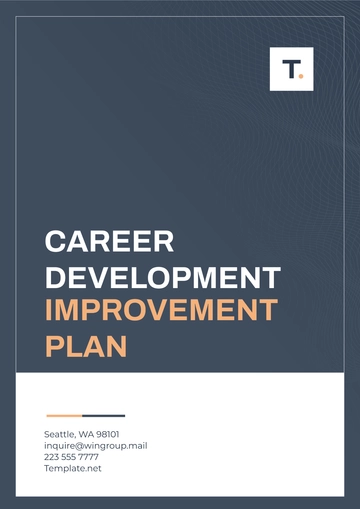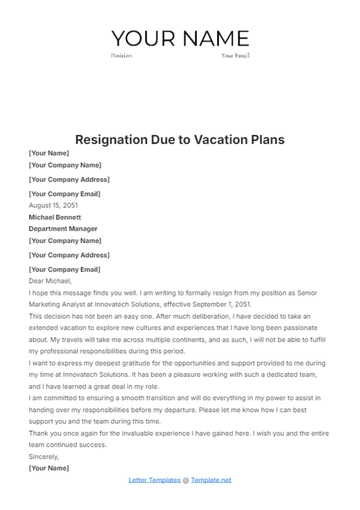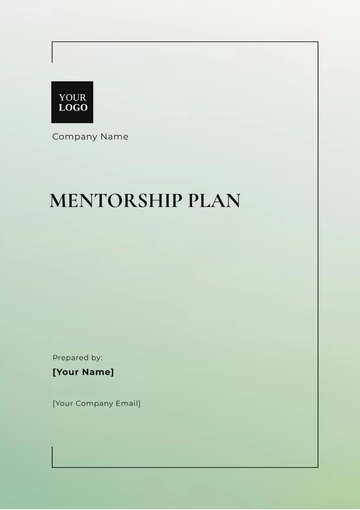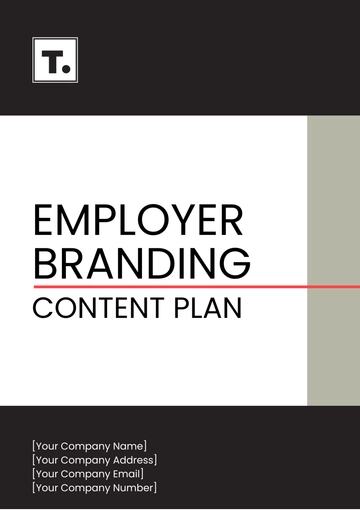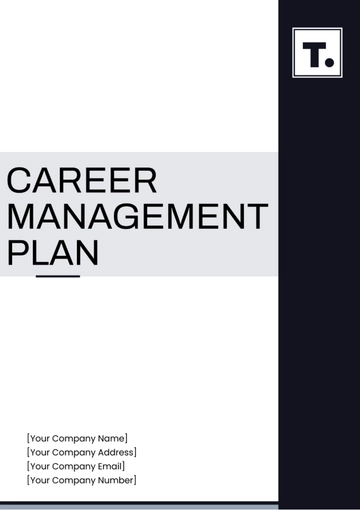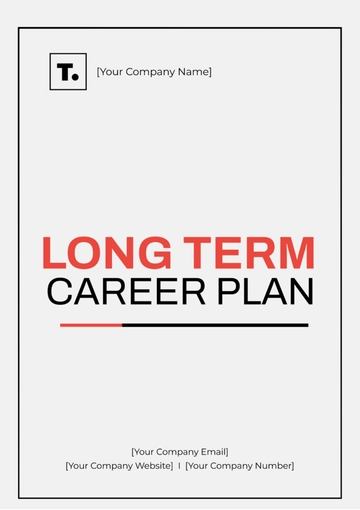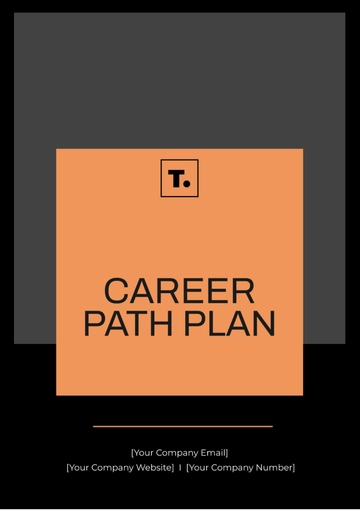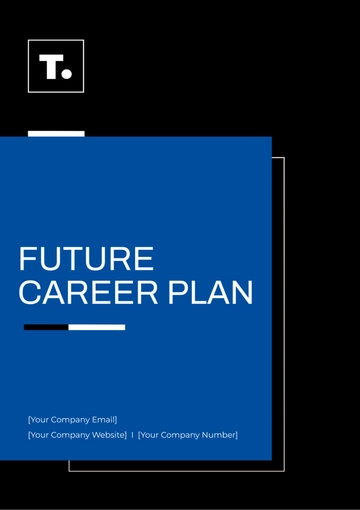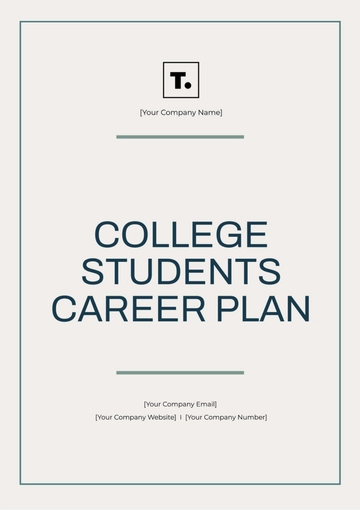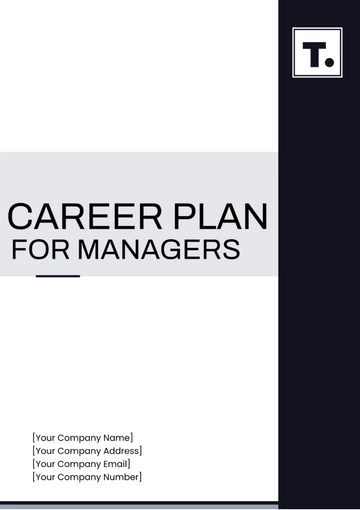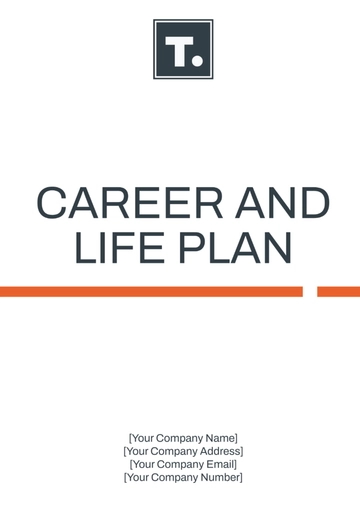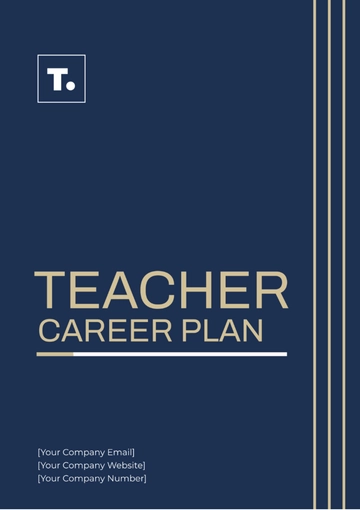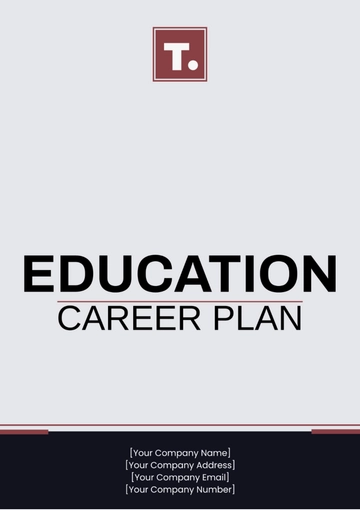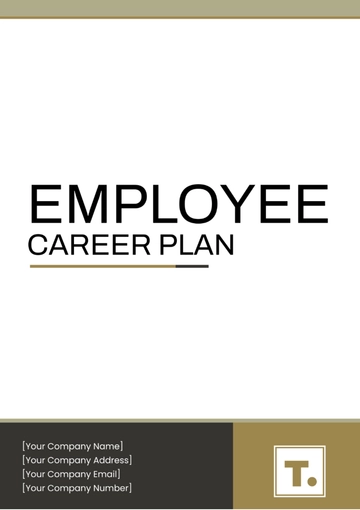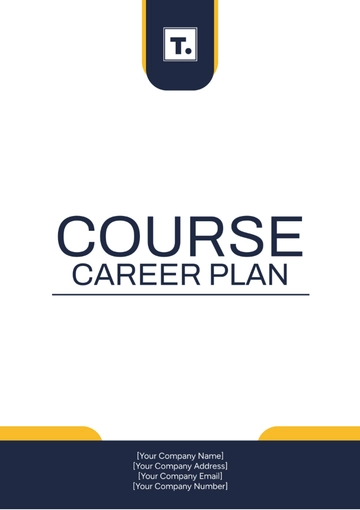Free Leadership Career Plan

_____________________________________________________________________________________
I. Personal Profile
Name: | [Your Name] |
Address: | [Your Address] |
II. Executive Summary
As a driven and ambitious professional, I aim to ascend to leadership positions within the finance industry. With a strong foundation in financial analysis, I am committed to continuous growth and development to excel as a leader.
III. Career Objectives
A. Short-Term Goals (1-3 years)
Secure a managerial position within XYZ Corporation or a similar organization.
Complete the Executive Leadership Program at Harvard Business School to enhance leadership skills.
Develop and implement a project management strategy to streamline operations in my current role.
B. Long-Term Goals (3-5 years)
Attain a senior leadership role, such as Director of Finance, within the finance industry.
Establish a mentorship program within XYZ Corporation to nurture emerging finance leaders.
Expand professional network by joining the Financial Managers Association and attending leadership conferences.
IV. Skills Development Plan
A. Leadership Skills
Communication
Enhance public speaking skills through workshops and seminars.
Decision-Making
Take decision-making training courses to enhance analytical skills.
Team Building
Lead cross-functional teams to cultivate teamwork and collaboration.
B. Technical Skills
Project Management
Obtain certification in project management to oversee complex projects effectively.
Data Analysis
Enroll in online courses to develop proficiency in data analytics tools.
Financial Management
Attend workshops on financial management to better understand budgeting and forecasting.
V. Networking Strategy
Internal Networking
Schedule regular meetings with senior executives to build relationships and seek mentorship.
External Networking
Attend industry events and conferences to connect with peers and industry leaders.
Online Presence
Engage with industry forums and LinkedIn groups to expand professional network.
VI. Adaptability and Flexibility
In today's dynamic business environment, adaptability and flexibility are essential qualities for effective leadership. To cultivate these attributes, it is imperative to remain agile in response to industry changes by consistently updating skills and knowledge through ongoing education and professional development opportunities.
Strategies for Enhancing Adaptability and Flexibility:
Continuous Learning
Commit to lifelong learning by embracing a growth mindset, staying current with industry trends, and regularly participating in workshops, seminars, and conferences.
Embrace Change
Instead of resisting change, embrace it as an opportunity for growth and innovation. Cultivate a mindset of curiosity and openness to new ideas, perspectives, and methodologies.
Networking and Collaboration
Engage with diverse networks of professionals within and outside your industry. Collaborate on projects, exchange ideas, and leverage collective knowledge to navigate uncertainty and drive positive change.
Adaptive Leadership
Foster a culture of adaptability within your team or organization. Lead by example, encourage experimentation, and provide support and resources for innovation and continuous improvement.
VII. Accountability Measures
Set quarterly goals and conduct self-assessments to track progress.
Schedule bi-monthly meetings with a mentor or coach to receive feedback and guidance.
Review career plan annually to make necessary adjustments based on achievements and evolving career aspirations.
VIII. Next Steps
Take the following actions to kickstart the implementation of the career plan:
Set Timelines
Establish specific deadlines for achieving each short-term and long-term goal outlined in the career objectives section.
Delegate Tasks
Assign responsibilities to relevant team members or external partners to ensure efficient execution of action plans.
Allocate Resources
Identify and allocate necessary resources, such as time, budget, and manpower, to support the attainment of career goals.
Monitor Progress
Regularly track progress against set timelines and milestones, making adjustments as needed to stay on course.
Seek Support
Reach out to mentors, coaches, or colleagues for guidance and support throughout the implementation process.
- 100% Customizable, free editor
- Access 1 Million+ Templates, photo’s & graphics
- Download or share as a template
- Click and replace photos, graphics, text, backgrounds
- Resize, crop, AI write & more
- Access advanced editor
Discover the definitive guide to charting your professional trajectory with Template.net's Leadership Career Plan Template. Crafted for ambitious individuals, this editable and customizable resource empowers you to map out your aspirations with precision. Seamlessly edit in our AI tool for unparalleled convenience. Elevate your career journey today.
You may also like
- Finance Plan
- Construction Plan
- Sales Plan
- Development Plan
- Career Plan
- Budget Plan
- HR Plan
- Education Plan
- Transition Plan
- Work Plan
- Training Plan
- Communication Plan
- Operation Plan
- Health And Safety Plan
- Strategy Plan
- Professional Development Plan
- Advertising Plan
- Risk Management Plan
- Restaurant Plan
- School Plan
- Nursing Home Patient Care Plan
- Nursing Care Plan
- Plan Event
- Startup Plan
- Social Media Plan
- Staffing Plan
- Annual Plan
- Content Plan
- Payment Plan
- Implementation Plan
- Hotel Plan
- Workout Plan
- Accounting Plan
- Campaign Plan
- Essay Plan
- 30 60 90 Day Plan
- Research Plan
- Recruitment Plan
- 90 Day Plan
- Quarterly Plan
- Emergency Plan
- 5 Year Plan
- Gym Plan
- Personal Plan
- IT and Software Plan
- Treatment Plan
- Real Estate Plan
- Law Firm Plan
- Healthcare Plan
- Improvement Plan
- Media Plan
- 5 Year Business Plan
- Learning Plan
- Marketing Campaign Plan
- Travel Agency Plan
- Cleaning Services Plan
- Interior Design Plan
- Performance Plan
- PR Plan
- Birth Plan
- Life Plan
- SEO Plan
- Disaster Recovery Plan
- Continuity Plan
- Launch Plan
- Legal Plan
- Behavior Plan
- Performance Improvement Plan
- Salon Plan
- Security Plan
- Security Management Plan
- Employee Development Plan
- Quality Plan
- Service Improvement Plan
- Growth Plan
- Incident Response Plan
- Basketball Plan
- Emergency Action Plan
- Product Launch Plan
- Spa Plan
- Employee Training Plan
- Data Analysis Plan
- Employee Action Plan
- Territory Plan
- Audit Plan
- Classroom Plan
- Activity Plan
- Parenting Plan
- Care Plan
- Project Execution Plan
- Exercise Plan
- Internship Plan
- Software Development Plan
- Continuous Improvement Plan
- Leave Plan
- 90 Day Sales Plan
- Advertising Agency Plan
- Employee Transition Plan
- Smart Action Plan
- Workplace Safety Plan
- Behavior Change Plan
- Contingency Plan
- Continuity of Operations Plan
- Health Plan
- Quality Control Plan
- Self Plan
- Sports Development Plan
- Change Management Plan
- Ecommerce Plan
- Personal Financial Plan
- Process Improvement Plan
- 30-60-90 Day Sales Plan
- Crisis Management Plan
- Engagement Plan
- Execution Plan
- Pandemic Plan
- Quality Assurance Plan
- Service Continuity Plan
- Agile Project Plan
- Fundraising Plan
- Job Transition Plan
- Asset Maintenance Plan
- Maintenance Plan
- Software Test Plan
- Staff Training and Development Plan
- 3 Year Plan
- Brand Activation Plan
- Release Plan
- Resource Plan
- Risk Mitigation Plan
- Teacher Plan
- 30 60 90 Day Plan for New Manager
- Food Safety Plan
- Food Truck Plan
- Hiring Plan
- Quality Management Plan
- Wellness Plan
- Behavior Intervention Plan
- Bonus Plan
- Investment Plan
- Maternity Leave Plan
- Pandemic Response Plan
- Succession Planning
- Coaching Plan
- Configuration Management Plan
- Remote Work Plan
- Self Care Plan
- Teaching Plan
- 100-Day Plan
- HACCP Plan
- Student Plan
- Sustainability Plan
- 30 60 90 Day Plan for Interview
- Access Plan
- Site Specific Safety Plan



